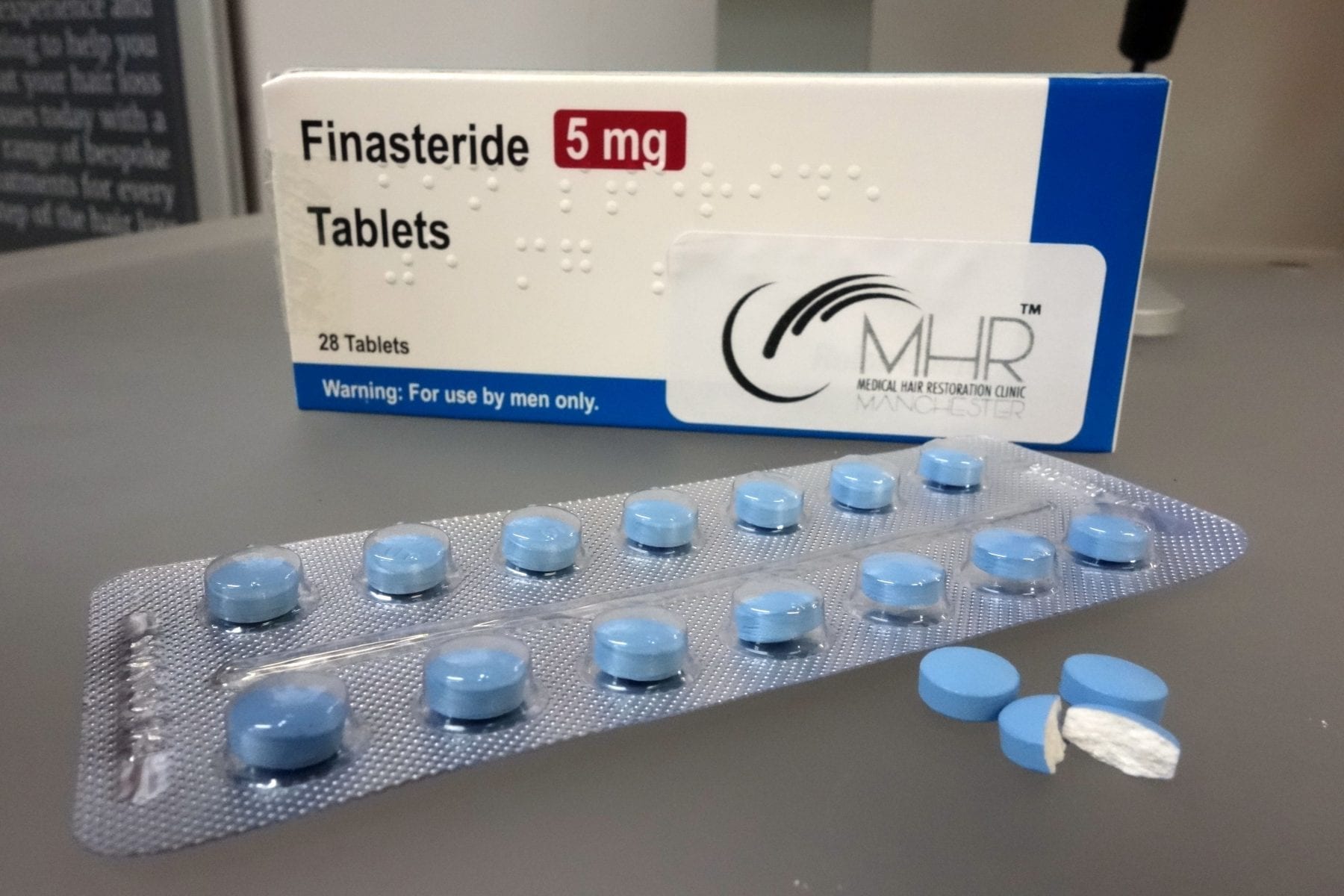Hair loss can be one of the most embarrassing and frustrating problems a person can face. If you’re struggling with hair loss, you might be searching for the best hair loss drug to restore your hair. In this article, we will discuss Finasteride, a popular hair loss drug, and how it can help prevent hair loss. We’ll also discuss who should take Finasteride, the benefits and side effects, the dosage, and alternatives to Finasteride. Finally, we’ll discuss how to prevent hair loss without the use of Finasteride.
There are several drugs that can be used to treat hair loss, but the most effective ones are finasteride and minoxidil. Finasteride is a prescription drug that is taken orally and is used to treat male pattern baldness. It works by blocking the conversion of testosterone into dihydrotestosterone (DHT), a hormone that plays a key role in hair loss. Minoxidil, on the other hand, is a topical medication that is applied directly to the scalp. It is available over the counter and can help to stimulate hair growth in both men and women. Other drugs that may be used to treat hair loss include dutasteride, cyclosporine, and topical corticosteroids.
What is Finasteride?
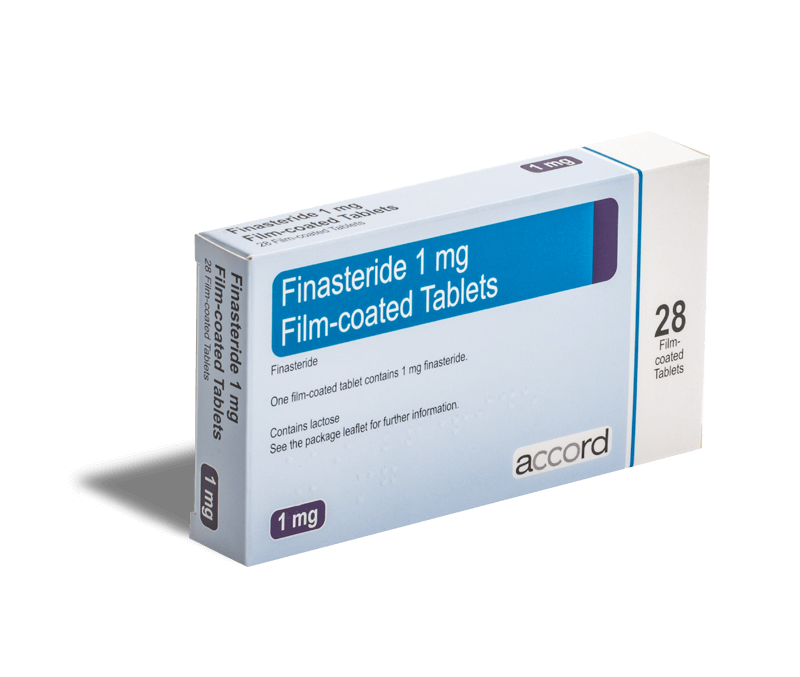
Finasteride is a drug used to treat male pattern baldness or androgenic alopecia. It is also used to treat benign prostatic hyperplasia (BPH). Finasteride is a type of 5-alpha-reductase inhibitor, which works by blocking the enzyme responsible for converting testosterone to dihydrotestosterone (DHT). DHT is a hormone that is responsible for hair loss in men. By blocking the production of DHT, Finasteride helps to slow down the progression of hair loss and can even help to regrow hair.
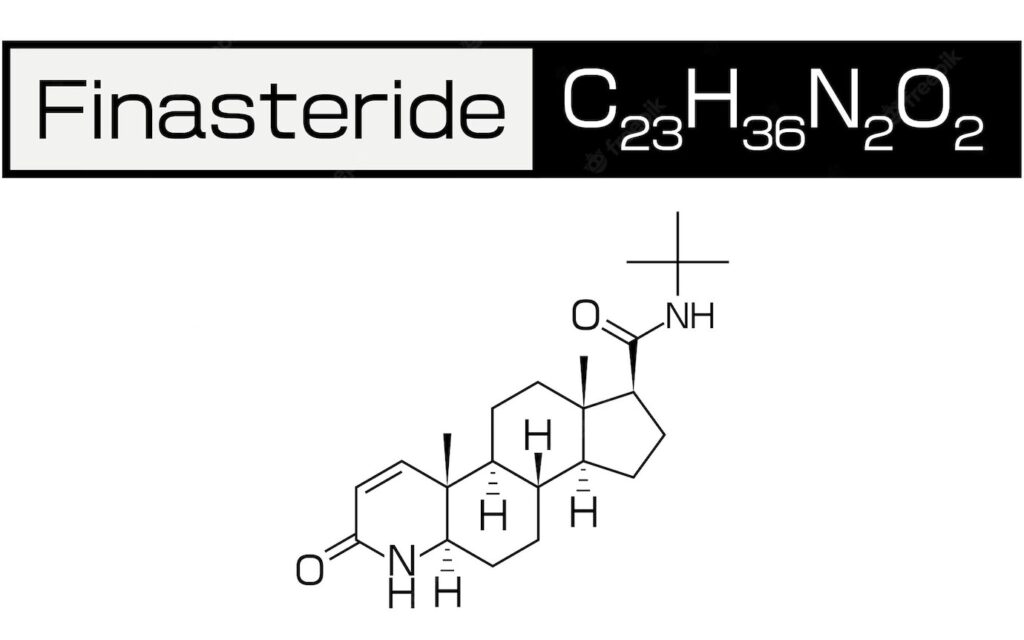
Finasteride was first approved by the FDA in 1997 and is now available in generic form. It is also available in a 1mg tablet as a brand-name drug called Propecia.
How Does Finasteride Work?
Finasteride works by blocking the production of DHT, the hormone that causes male pattern baldness. As mentioned earlier, DHT is a hormone that is responsible for hair loss in men. When DHT is blocked, the hair follicles are not affected and do not produce DHT. This helps to slow down hair loss and can even help to regrow hair.
Finasteride is usually taken once daily, usually in the form of a pill. It takes several months for Finasteride to take effect, and it is important to continue taking the medication as prescribed even if you do not see results right away.
Do I have to take finasteride forever?
It is generally recommended that you continue taking finasteride as long as you want to maintain the benefits of the medication. Finasteride is a prescription drug that is used to treat male pattern baldness by blocking the conversion of testosterone into dihydrotestosterone (DHT), a hormone that plays a key role in hair loss. It is typically taken orally, and many people find that it is effective at helping to slow down or stop hair loss. However, once you stop taking the medication, the hair loss process will typically resume and any hair that has regrown will be lost. If you want to maintain the benefits of finasteride, it is generally recommended that you continue taking the medication for as long as you want to keep your hair. It is important to talk to your doctor about the potential risks and benefits of taking finasteride long-term.
Benefits of Finasteride
Finasteride is a popular hair loss drug and can help to slow down or even reverse the effects of hair loss in men. It is a safe and effective medication that is well-tolerated by most people. It is also relatively inexpensive and widely available.
One of the main benefits of Finasteride is that it can help to slow down the progression of hair loss and can even help to regrow hair in some cases. It is also a relatively safe drug with few side effects.
Side Effects of Finasteride
Although Finasteride is generally safe and well-tolerated, there are some potential side effects. The most common side effects include loss of libido, erectile dysfunction, and decreased ejaculate volume. Other potential side effects include decreased libido, depression, and anxiety.
It is important to note that these side effects are rare and usually only occur in a small percentage of people who take the medication. If you experience any of these side effects, it is important to speak to your doctor right away.
When is it too late for finasteride?
It is not necessarily too late to start taking finasteride, even if you have already experienced significant hair loss. Finasteride is a prescription medication that is used to treat male pattern baldness by blocking the conversion of testosterone into dihydrotestosterone (DHT), a hormone that plays a key role in hair loss. It is typically taken orally, and many people find that it is effective at helping to slow down or stop hair loss. In some cases, finasteride may even help to regrow some of the hair that has been lost. However, the effectiveness of the medication can vary depending on the individual, and it may not work for everyone. It is important to talk to your doctor about whether finasteride is right for you, regardless of how much hair you have already lost.
Finasteride Dosage
Finasteride is usually taken once daily in the form of a pill. The typical dose is 1mg per day, although your doctor may adjust the dose depending on your individual needs. It is important to take Finasteride as prescribed by your doctor and not to take more than the recommended dose.
Who Should Take Finasteride?
Finasteride is approved for use in men only. It should not be used by women or children. It is also important to speak to your doctor before taking Finasteride to make sure it is safe for you.
Alternatives to Finasteride
If you are not interested in taking Finasteride, there are other alternatives. Minoxidil is a topical lotion that is applied directly to the scalp and can help to slow down the progression of hair loss. Laser therapy is another option that can help to stimulate hair growth. Both of these treatments are generally safe and well-tolerated.
Finasteride and minoxidil are both drugs that are used to treat hair loss, but they work in different ways. Finasteride is a prescription medication that is taken orally and works by blocking the conversion of testosterone into dihydrotestosterone (DHT), a hormone that plays a key role in hair loss. It is most commonly used to treat male pattern baldness. Minoxidil, on the other hand, is a topical medication that is applied directly to the scalp. It is available over the counter and works by stimulating hair growth. It can be used by both men and women.
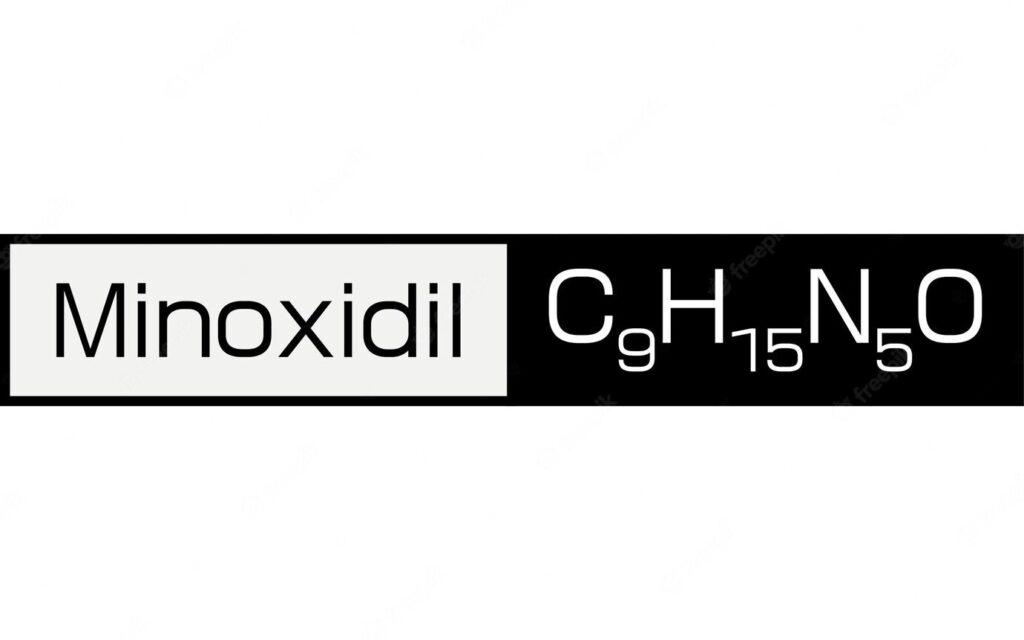
Can I just take finasteride and not minoxidil?
Yes, you can take finasteride without using minoxidil. Finasteride is a prescription medication that is used to treat male pattern baldness by blocking the conversion of testosterone into dihydrotestosterone (DHT), a hormone that plays a key role in hair loss. It is typically taken orally, and many people find that it is effective at helping to slow down or stop hair loss. Minoxidil, on the other hand, is a topical medication that is applied directly to the scalp. It is available over the counter and can be used by both men and women to stimulate hair growth. Some people may choose to use both finasteride and minoxidil for maximum effectiveness, but it is not necessary to use both drugs. It is important to consult with a doctor before starting any treatment for hair loss.
Will finasteride work for 20 years?
It is difficult to predict whether finasteride will continue to be effective for 20 years, as this can vary depending on the individual and their specific situation. Finasteride is a prescription medication that is used to treat male pattern baldness by blocking the conversion of testosterone into dihydrotestosterone (DHT), a hormone that plays a key role in hair loss. It is typically taken orally, and many people find that it is effective at helping to slow down or stop hair loss. In some cases, finasteride may even help to regrow some of the hair that has been lost. However, the effectiveness of the medication can vary depending on the individual, and it may not work for everyone. It is important to talk to your doctor about whether finasteride is right for you and to discuss the potential risks and benefits of taking the medication long-term.
What is the success rate of finasteride?
The success rate of finasteride can vary depending on the individual and their specific situation. Finasteride is a prescription medication that is used to treat male pattern baldness by blocking the conversion of testosterone into dihydrotestosterone (DHT), a hormone that plays a key role in hair loss. In clinical trials, finasteride has been shown to be effective at helping to slow down or stop hair loss in many people, and it may even help to regrow some of the hair that has been lost. However, the effectiveness of the medication can vary depending on the individual, and it may not work for everyone. It is important to talk to your doctor about whether finasteride is right for you and to discuss the potential risks and benefits of taking the medication.
Can finasteride regrow hairline?
Finasteride may be able to help regrow hair on the hairline in some cases, but it is not guaranteed to work for everyone. Finasteride is a prescription medication that is used to treat male pattern baldness by blocking the conversion of testosterone into dihydrotestosterone (DHT), a hormone that plays a key role in hair loss. In clinical trials, finasteride has been shown to be effective at helping to slow down or stop hair loss in many people, and it may even help to regrow some of the hair that has been lost. However, the effectiveness of the medication can vary depending on the individual, and it may not work for everyone. If you are interested in using finasteride to help regrow your hairline, it is important to talk to your doctor about whether it is a suitable option for you.
How to Prevent Hair Loss Without Finasteride
If you are not interested in taking Finasteride, there are other ways to prevent hair loss. Eating a healthy diet and getting regular exercise can help to keep your hair healthy and strong. Wearing a hat or scarf when you are in the sun can help to protect your scalp from the sun’s damaging rays. Limiting the amount of stress in your life can also help to reduce hair loss.
In addition, there are a number of natural treatments that can help to prevent hair loss. These include using essential oils, eating foods that are rich in vitamins and minerals, and using natural supplements such as saw palmetto and green tea extract.
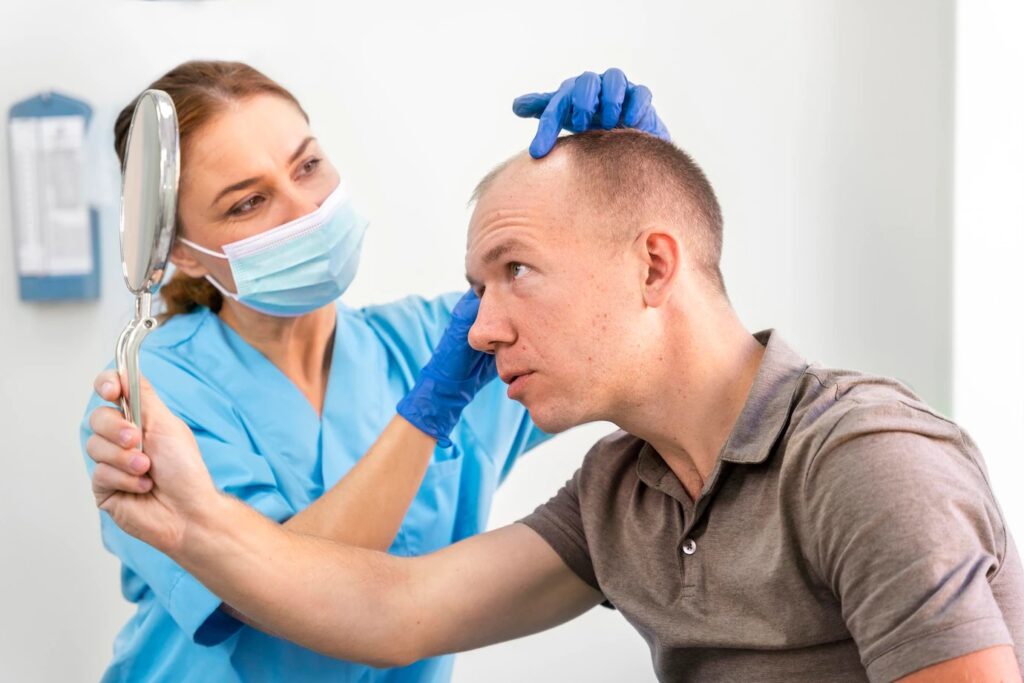
Hair Loss Prevention Tips
If you are looking for ways to prevent hair loss, here are some tips to keep in mind:
- Eat a healthy diet that is rich in vitamins and minerals.
- Get regular exercise to keep your scalp healthy.
- Avoid using harsh hair products.
- Limit the amount of stress in your life.
- Use natural treatments such as essential oils and natural supplements.
- Wear a hat or scarf when you are in the sun.
- Avoid tight hairstyles that can pull on the hair.
- Regularly wash your hair with a gentle shampoo.
Conclusion
Finasteride is a popular hair loss drug that can help to slow down or even reverse the effects of hair loss in men. It is a safe and effective medication that is well-tolerated by most people. However, there are some potential side effects that you should be aware of. It is important to speak to your doctor before taking Finasteride to make sure it is safe for you.
If you are not interested in taking Finasteride, there are other ways to prevent hair loss. Eating a healthy diet, getting regular exercise, and using natural treatments such as essential oils and natural supplements can all help to prevent hair loss. Wearing a hat or scarf when you are in the sun can also help to protect your scalp from the sun’s damaging rays.
If you are looking for the best hair loss drug, Finasteride may be an option for you. However, it is important to speak to your doctor to make sure it is safe and appropriate for you.

